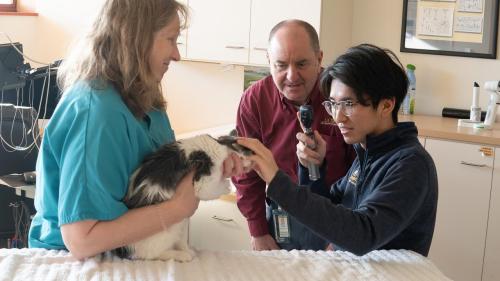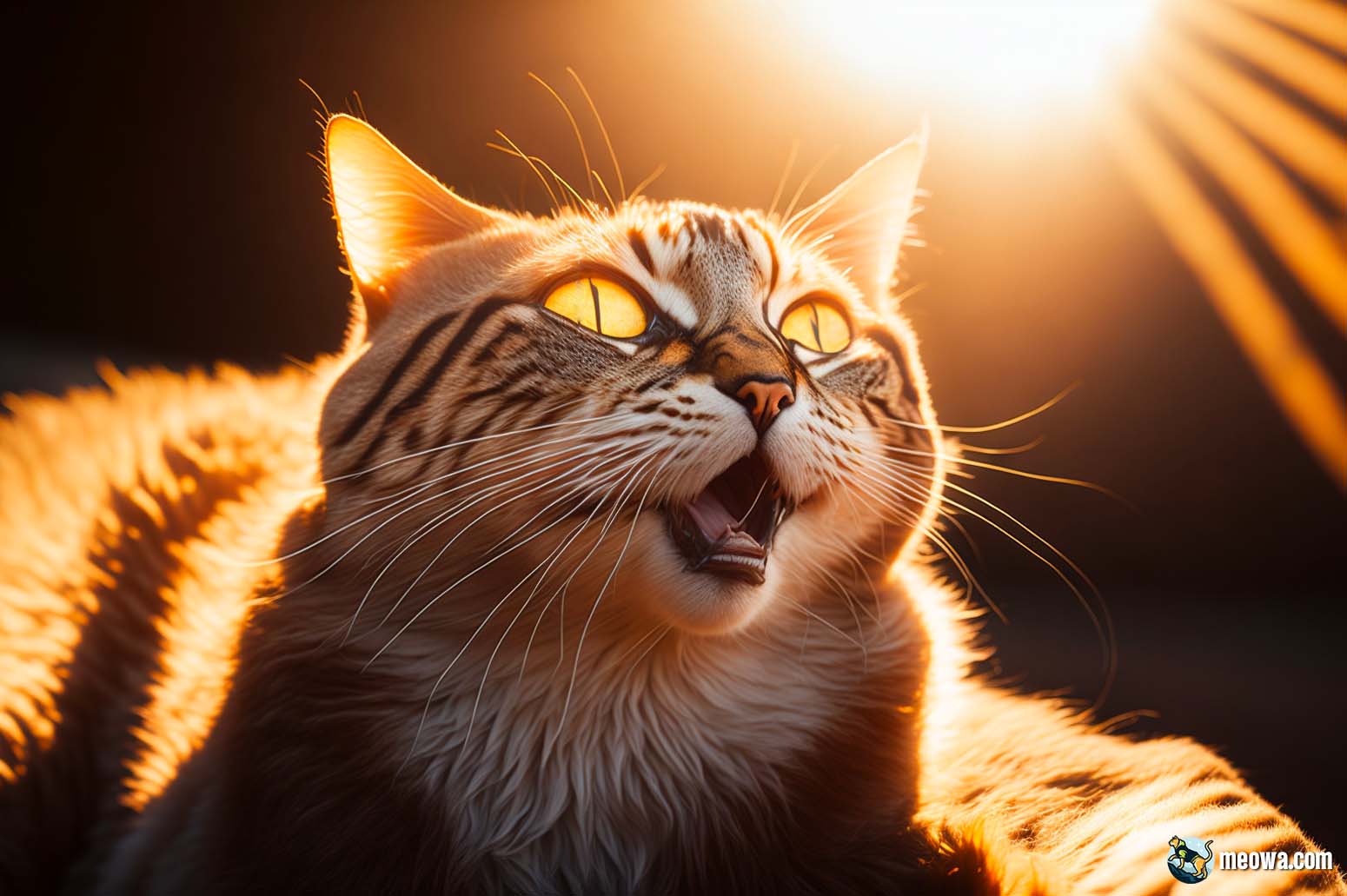If your cat is drooling excessively, it could indicate dental problems or an underlying health issue that requires veterinary attention. Excessive drooling in cats can be caused by various factors, including dental disease, oral infections, mouth ulcers, foreign objects stuck in the mouth, or even nausea and gastrointestinal issues.
Additionally, certain medications and toxins can also lead to increased drooling in cats. It is essential to monitor your cat’s drooling and consult a veterinarian for a proper diagnosis and treatment plan. Early intervention can help alleviate discomfort and ensure your cat’s overall health and well-being.
What Causes Drooling In Cats?
Excessive drooling in cats can be attributed to various factors, including dental problems such as gum disease or tooth decay. Additionally, oral ulcers, which are open sores in the mouth, may cause cats to salivate more than usual. Nausea and gastrointestinal issues, such as an upset stomach or acid reflux, can also result in increased drooling.
Moreover, poisoning or exposure to toxic substances can stimulate excessive saliva production in cats. Furthermore, allergies or irritants, such as certain foods or chemicals, may cause a cat to drool excessively as a reaction. If your cat is exhibiting persistent drooling, it is essential to consult a veterinarian to identify and address the underlying cause.
By understanding the potential reasons for increased drooling, you can better care for your feline companion’s oral health and overall well-being.

Credit: ccah.vetmed.ucdavis.edu
Recognizing The Symptoms Of Excessive Salivation
Excessive drooling in cats is a concerning symptom that should not be ignored. One common sign is wet fur around the mouth, a result of the excessive saliva. Another indication is when your cat frequently paws at their mouth, trying to alleviate discomfort.
Additionally, inflamed gums or mouth can contribute to the excessive drooling. These symptoms may be accompanied by difficulty eating or swallowing, as the drooling can interfere with the cat’s ability to consume food. If your cat is experiencing these symptoms, it is important to seek veterinary care to identify and address the underlying cause.
Seeking Veterinary Assistance For Excessive Salivation
Excessive salivation in cats can be a cause for concern and should prompt a visit to the veterinarian. During the veterinary visit, a thorough medical history and physical examination will be conducted to identify any potential underlying issues. Diagnostic tests and procedures may also be performed to gather additional information and pinpoint the cause of the excessive drooling.
Treatment options and recommendations will be provided by the veterinarian based on the findings. It is important not to ignore excessive drooling in cats as it can be a symptom of an underlying medical condition that requires attention. Seeking veterinary assistance is crucial to ensure the health and well-being of your feline companion.
Dental Diseases Leading To Drooling In Cats
Excessive drooling in cats can be caused by dental diseases such as periodontal disease, tooth abscess, feline stomatitis, oral tumors, or foreign objects stuck in the mouth. These conditions can be painful and uncomfortable for your furry friend. Periodontal disease affects the gums and the supporting structures of the teeth.
A tooth abscess is a bacterial infection that forms a pus-filled pocket around the tooth. Feline stomatitis is an inflammation of the mouth tissues, causing pain and drooling. Oral tumors can also lead to excessive drooling due to their impact on the cat’s oral health.
Finally, foreign objects stuck in the mouth can cause irritation and excess salivation. If your cat is drooling excessively, it’s essential to consult a veterinarian to identify the underlying cause and provide appropriate treatment. Maintaining good dental hygiene and scheduling regular check-ups can help prevent these dental diseases and ensure your cat’s well-being.
Treatment And Management Of Dental Issues
Cats drooling excessively can be a sign of underlying dental issues. Dental cleaning is essential for maintaining oral hygiene in cats. Regular professional cleanings can help prevent dental problems. If necessary, tooth extraction may be required to treat severe dental issues.
Antibiotics and pain medication may be prescribed to manage infections and discomfort. Making lifestyle changes, such as switching to a moist diet and providing appropriate toys, can also help improve dental health. Additionally, practicing good home care, like brushing your cat’s teeth regularly, can aid in preventing further dental problems.
By addressing dental issues promptly and providing proper treatment and management, you can help your cat maintain a healthy and drool-free mouth.
Link Between Nausea And Salivation In Cats
Excessive drooling in cats may be a sign of various underlying health issues. One possible cause is gastritis, which is the inflammation of the stomach lining. Another condition that can lead to increased salivation is inflammatory bowel disease, where the intestines become inflamed.
Pancreatitis, an inflammation of the pancreas, is also known to cause excessive drooling in cats. Additionally, gastrointestinal obstruction, such as a foreign object blocking the intestines, can result in increased saliva production. Finally, chronic kidney disease can lead to nausea and therefore excessive drooling in cats.
If you notice your cat drooling excessively, it is crucial to consult with a veterinarian to determine the underlying cause and provide appropriate treatment.
Treating Gastrointestinal Disorders And Salivation
Cats drooling excessively can be a sign of gastrointestinal disorders. Modifying their diet and providing them with prescription food can help. Medications are available for providing symptom relief. In some cases, surgery or other interventions may be necessary. It is important to monitor your cat’s condition and provide follow-up care as needed.
Treating gastrointestinal disorders and managing excessive salivation can help improve your cat’s overall health and well-being.
Common Toxins Affecting Cats And Salivation
Cats drooling excessively can be a sign of exposure to common toxins. Certain plants and flowers often pose a threat to cats, causing them to salivate excessively. Household chemicals and cleaners, if ingested by cats, can also trigger excessive drooling.
Even human medications and supplements, when consumed by cats, can lead to increased salivation. Pest control products, such as insecticides, should also be kept away from cats as they can cause excessive drooling. It is important to note that certain foods are toxic to cats and can result in excessive drooling if ingested.
Being aware of these common toxins and keeping them out of the reach of cats is crucial in preventing the issue of excessive drooling.
Identifying Allergic Reactions And Treatment
Excessive drooling in cats can be a sign of allergic reactions. One common symptom is skin irritation and itching. If your cat is constantly scratching or biting at its skin, it may be experiencing an allergic response. Another sign is respiratory distress, such as coughing or wheezing.
To identify and treat these allergies, elimination diet trials can be helpful. By removing potential triggers from your cat’s diet and reintroducing them one by one, you can pinpoint the culprits. Additionally, antihistamines and other medications may be prescribed by your veterinarian to alleviate the symptoms.
Moreover, it’s important to minimize your cat’s exposure to environmental allergens. Regular cleaning and using air filters can help reduce allergens in your home. Overall, identifying and addressing allergic reactions can help reduce your cat’s excessive drooling and improve its quality of life.
Frequently Asked Questions Of Why Is My Cat Drooling So Much
Why Is My Cat Drooling Excessively?
Excessive drooling in cats could be caused by dental problems, nausea, or a foreign object stuck in their mouth. It may also be due to heat stroke, certain medications, or a neurological issue. If your cat is drooling excessively, it’s important to consult with your veterinarian for a proper diagnosis and treatment.
Can Stress Cause My Cat To Drool?
Yes, stress can cause cats to drool. Cats may drool excessively when they are anxious, afraid, or stressed due to changes in their environment, such as moving to a new house or the addition of a new pet. If you suspect that stress is causing your cat to drool, try to reduce their stress levels and provide them with a calm and comforting environment.
Is It Normal For My Cat To Drool When They’Re Happy?
Some cats may drool a little when they are relaxed and content. This is often referred to as “happy drooling. ” It’s usually nothing to be concerned about, as long as the drooling is not excessive and your cat is otherwise healthy.
However, if you notice any changes in your cat’s drooling habits or if they drool excessively, it’s best to consult with your veterinarian.
Conclusion
It is important to pay attention to your cat’s excessive drooling as it may be a sign of an underlying health issue. While a small amount of drool is normal, an excessive amount could indicate dental problems, oral infections, or even gastrointestinal issues.
By observing your cat’s behavior, examining their mouth, and consulting with a veterinarian, you can determine the cause and provide appropriate treatment. Regular dental hygiene, such as brushing your cat’s teeth and providing them with appropriate chew toys, can help prevent dental issues and excessive drooling.
Additionally, providing a balanced diet and ensuring your cat stays hydrated can contribute to their overall oral health. Remember, any sudden or extreme changes in your cat’s drooling should be addressed promptly to ensure their well-being. Take a proactive approach to your feline friend’s oral health to keep them happy and healthy for years to come.



